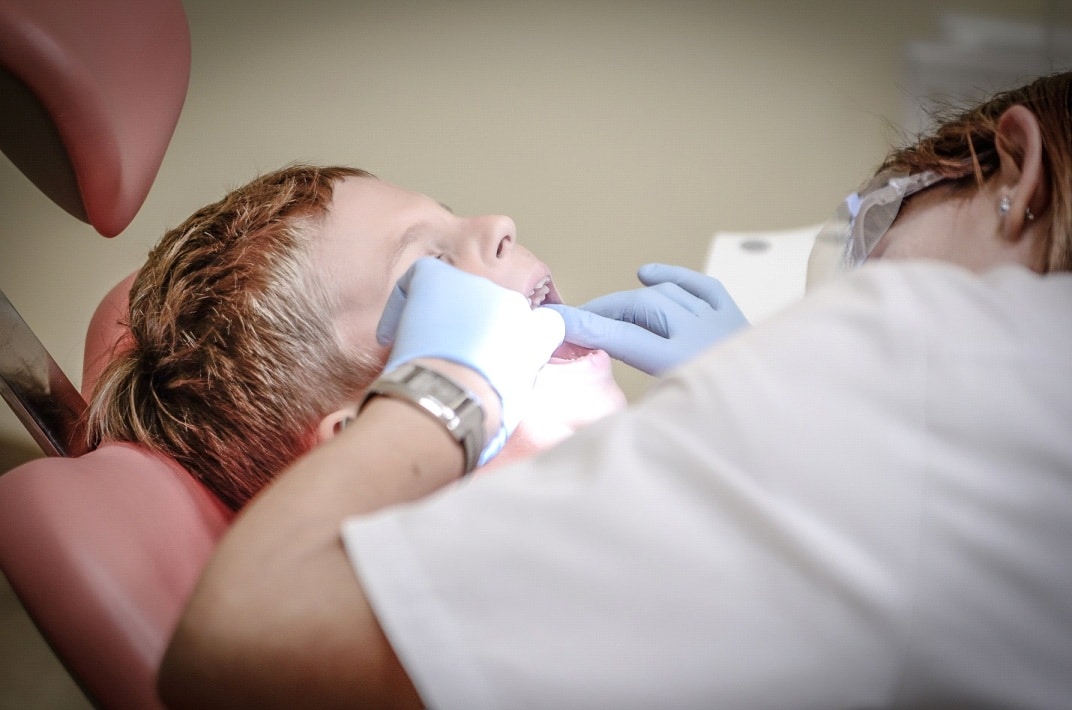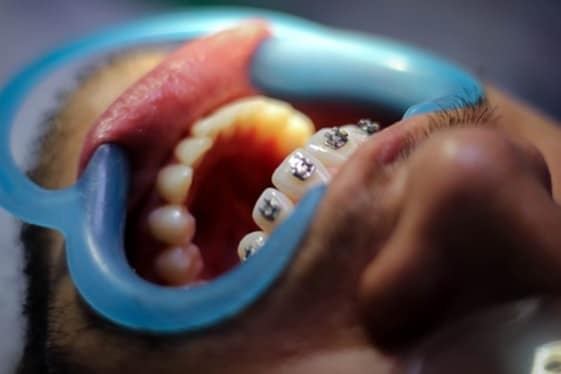Are you suffering from bite problems? There are cases of deep bite and minor bite problems. Bite blocks braces help align your teeth and jaw while you wear braces. This device slowly splits lower and upper teeth and helps improve bite alignment, and also allows you to speed up your treatment time.
The bite blocks are mainly used with traditional braces to realign your bite. You may feel awkward having bite turbos and feel uncomfortable on your tongue. It may take a few weeks to get adjusted to it.
What are Bite Blocks for Braces?
Bite blocks, ramps, and turbos are small appliances that support your teeth and are usually used with braces-based orthodontic treatment. For teeth alignment, your orthodontist may recommend braces to realign teeth. Therefore, you can find the best color braces to get when undergoing braces treatment. Braces are made up of brackets affixed to the teeth and connected by an archwire. Braces gradually force your teeth into their correct position by applying the right amount of pressure.

You may need bite turbos on the front or back teeth to get the best outcomes with braces. They help protect your brackets from damage when you bite down by thwarting the top and lower teeth from contacting each other.
By changing your biting pattern, you can reduce pressure on the brackets. Finally, you get a healthy smile and more rapid and effective tooth alignment.
Potential Side Effects of Bite Blocks
Bite turbos can have specific adverse effects, especially in the beginning, much as any orthodontic procedure. Here are some of the typical problems with bite blocks:
Chewing Issues
Bite turbos alter how the muscles in your jaw function. Adjusting to your new role and developing healthy eating habits will take some time.
It's recommended to eat softer meals that need less chewing when adjusting. Cutting food into smaller pieces and taking smaller bites is also beneficial. Your jaw muscles will adjust after about a week as they become used to the new position.
Speech Impairment
Bite blockages may cause your tongue to move differently while you talk. You could have trouble pronouncing some vowel sounds and words.
Bite turbos affixed to the teeth' inner (lingual) surface are more likely to cause this issue.
Like chewing, you'll get used to the bite block as your jaw and tongue muscles adjust. It could be beneficial to talk out loud to yourself. However, you may have to work with your speech and language pathologist if your speech problems persist.
Discomfort
At first, braces and biting turbos can be painful. As your tongue adapts to its new form, your mouth may become dry and sore. However, over time, things should become better.
OTC pain relievers may help reduce discomfort & soreness. But if you feel any discomfort or swelling, call your orthodontist or general dentist immediately. If necessary, they will modify the biting block.

Lost or damaged blocks
Bite blocks may deteriorate, fall off, or become brittle over time. Your braces and teeth risk being harmed if your bite blocks aren't entirely functional.
Contact your orthodontist immediately if you realize a block is damaged or missing so they may examine your mouth and replace the bite block.
Attacking One Block
Your bite may change during treatment, and your teeth may only touch one block. Although it may seem unusual, it is to be expected.
Your best rated orthodontist may not need to address the issue if you are not in discomfort. But if biting on one block creates other problems, contact them for advice.
In Conclusion:
Bite turbos will soon be comfortable with your treatment, and you will not feel soreness or pain. Speaking and chewing may cause some issues at the start of the treatment. Call your south miami orthodontist for more information and the cost of the treatment.
Comments